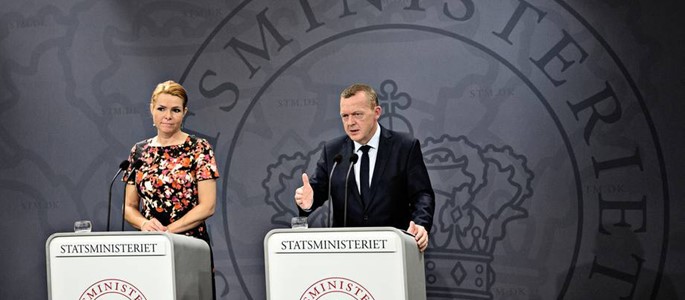Danish government presents 44 new restrictions for refugees and migrants
In spite of very few new asylum seekers, the government wants to turn away applicants on the border, postpone the reception of quota refugees, and raise the demands for permanent stay and allowances
The present demands for permanent stay, full social welfare and children's support are already strongly criticised by integration experts and municipalities for creating poverty and removing the incentives for integration by making it impossible to ever become a full member of Danish society.
The reception of quota refugees (resettlement refugees from UN) is often mentioned by experts as something we should expand to counteract smugglers and drowning accidents – Denmark is now moving in the opposite direction.
Increased use of border control, turn away on the border etc. seems more like an escalation of the internal conflicts in EU than a solution.
The list, however, also holds a few positive elements: aid work in the conflict regions will receive an extra 1 billion DKR, smaller asylum centers for the unaccompanied minors, and reception programs in the home countries should be looked into.
Short summary of the most important points, concerning refugees (read the whole catalogue here, in Danish):
• Turning away asylum seekers on the border if a situation like last summer arises again
• Allocating 1 billion DKR to the aid work, long as well as short term, in the regions housing refugees (mainly Syrian, probably)
• Postponing the reception of 500 quota refugees, which Denmark usually receives, until next year – and with a reservation regarding the amount
• The police must be present around the clock in deportation center Kærshovedgård
• Establishing a number of smaller asylum centers for unaccompanied minors, and access to withhold pocket money from the children if they break the rules in the center
• Higher demands to obtain permanent residence permit:
1) 6 years of legal stay before applying is raised to 8 years
2) 1 year of unsuspended prison sentence will today exclude the person from permanent residence forever, this is lowered to 6 months
3) Waiting periods because of suspended prison sentences will be raised up to 15 years
4) The demand to not having received welfare for the last 3 years is raised to 4 years
5) The demand for fulltime employment is raised to 3 1/2 years within the last 4 years
• More focus on returning rejected asylum seekers:
- Establishing reception centers for unaccompanied minors in the home countries
- Putting pressure on the home countries by using development- and trade policies as an instrument to accept rejected asylum seekers
- Establish reception- and reintegration programs in certain countries
- Using Frontex for deportation tasks
• Increase repatriation of foreigners with residence permit by paying higher cash amounts and introducing an option for health insurance, pension, school fees and bonus to the municipalities
• Establish a way of serving a Danish sentence in prisons in other countries, and stop the use of rehabilitation programs for persons with an expulsion order
• The existing demand of legal stay in Denmark for 7 out of the last 8 years to move from "integration allowance" to normal social welfare (approx. twice as much) is supplemented by a new demand of ordinary, unsupported fulltime employment for a total of 2 1/2 years
• Extension of the waiting period for receiving full children's support: the present 2 years is raised to 5 years, so that parents will receive 10 percent of the amount for every 6 months, reaching the full amount after 5 years
• Denmark's upcoming presidency at the European Council will be used to "bring the conventions back to the core" – according to the government, "practice over the years has brought the conventions out of touch with the original intentions".


